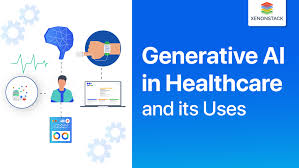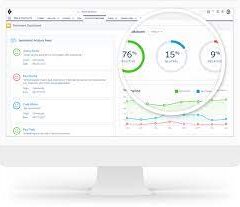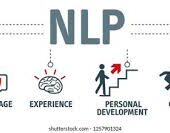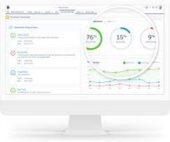Promising Patient Engagement Use Cases for GenAI and Chatbots
Generative AI (GenAI) is showing great potential in enhancing patient engagement by easing the burden on healthcare staff and clinicians while streamlining the overall patient experience. As healthcare undergoes its digital transformation, various patient engagement applications for GenAI and chatbots are emerging as promising tools. Let’s look at Promising Patient Engagement Use Cases for GenAI and Chatbots.
Key applications of GenAI and patient-facing chatbots include online symptom checkers, appointment scheduling, patient navigation, medical search engines, and even patient portal messaging. These technologies aim to alleviate staff workloads while improving the patient journey, according to some experts.
However, patient-facing AI applications are not without challenges, such as the risk of generating medical misinformation or exacerbating healthcare disparities through biased algorithms.
As healthcare professionals explore the potential of GenAI and chatbots for patient engagement, they must also ensure safeguards are in place to prevent the spread of inaccuracies and avoid creating health inequities.
Online Symptom Checkers
Online symptom checkers allow healthcare organizations to assess patients’ medical concerns without requiring an in-person visit. Patients can input their symptoms, and the AI-powered chatbot will generate a list of possible diagnoses, helping them decide whether to seek urgent care, visit the emergency department, or manage symptoms at home.
These tools promise to improve both patient experience and operational efficiency by directing patients to the right care setting, thus reducing unnecessary visits. For healthcare providers, symptom checkers can help triage patients and ensure high-acuity areas are available for those needing critical care.
Despite their potential, studies show mixed results regarding the diagnostic accuracy of online symptom checkers. A 2022 literature review found that diagnostic accuracy for these tools ranged from 19% to 37.9%. However, triage accuracy—referring patients to the correct care setting—was better, ranging between 48.9% and 90%.
Patient reception to symptom checkers has also been varied. For example, during the COVID-19 pandemic, symptom checkers were designed to help patients assess whether their symptoms were virus-related. While patients appreciated the tools, they preferred chatbots that displayed human-like qualities and competence. Tools perceived as similar in quality to human interactions were favored.
Furthermore, some studies indicate that online symptom checkers could deepen health inequities, as users tend to be younger, female, and more digitally literate. To mitigate this, AI developers must create chatbots that can communicate in multiple languages, mimic human interaction, and easily escalate issues to human professionals when needed.
Self-Scheduling and Patient Navigation
GenAI and conversational AI are proving valuable in addressing routine patient queries, like appointment scheduling and patient navigation, tasks that typically fall on healthcare staff. With a strained medical workforce, using AI for lower-level inquiries allows clinicians to focus on more complex tasks.
AI-enhanced appointment scheduling systems, for example, not only help patients book visits but also answer logistical questions like parking directions or department locations within a clinic. A December 2023 literature review highlighted that AI-optimized scheduling could reduce provider workload, increase patient satisfaction, and make healthcare more patient-centered.
However, key considerations for AI integration include ensuring health equity, broadband access, and patient trust. While AI can manage routine requests, healthcare organizations need to ensure their tools are accessible and functional for diverse populations.
Online Medical Research
GenAI tools like ChatGPT are contributing to the “Dr. Google” phenomenon, where patients search online for medical information before seeing a healthcare provider. While some clinicians have been cautious about these tools, research suggests they can effectively provide accurate medical information.
For instance, an April 2023 study showed that ChatGPT answered 88% of breast cancer screening questions correctly. Another study in May 2023 demonstrated that the tool could adequately educate patients on colonoscopy preparation. In both cases, the information was presented in an easy-to-understand format, essential for improving health literacy.
However, GenAI is not without flaws. Patients express concern about the reliability of AI-generated information, with a 2023 Wolters Kluwer survey showing that 49% of respondents worry about false information from GenAI. Additionally, many are uneasy about the unknown sources and validation processes behind the information.
To build patient trust, AI developers must ensure the accuracy of their source material and provide supplementary authoritative resources like patient education materials.
Patient Portal Messaging and Provider Communication
Generative AI has also found use in patient portal messaging, where it can draft responses on behalf of healthcare providers. This feature has the potential to reduce clinician burnout by handling routine inquiries.
A study conducted at Mass General Brigham in April 2024 revealed that a large language model embedded in a secure messaging tool could generate acceptable responses to patient questions. In 58% of cases, chatbot-generated messages required human editing.
Promising Patient Engagement Use Cases for GenAI and Chatbots
Interestingly, other research has found that AI-generated responses in patient portals are often more empathetic than those written by overworked healthcare providers. Nevertheless, AI responses should always be reviewed by a clinician to ensure accuracy before being sent to patients.
Generative AI is also making strides in clinical decision support and ambient documentation, further boosting healthcare efficiency. However, as healthcare organizations adopt these technologies, they must address concerns around algorithmic bias and ensure patient safety remains a top priority.













